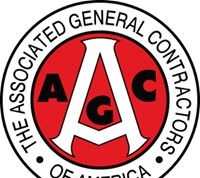Washington Post: “Despite Democratic rhetoric, the president’s suspension of an FHA fee cut is justified.”
Washington, D.C. – (RealEstateRama) — –
Obama’s last minute FHA move put “taxpayers and home buyers” at risk
“The new administration was perfectly justified in undoing it”
“The proposed reduction had not taken effect, so no borrower is hurt”
One of the Obama administration’s final actions was to slash the fee that mortgage borrowers must pay for Federal Housing Administration insurance on eligible loans. One of President Trump’s first actions Jan. 20 was to suspend that move pending further study. Democrats accused him of heartlessly hiking costs for the FHA’s low- and moderate-income clientele by $500 per year on a typical $200,000 loan. “One hour after talking about helping working people and ending the cabal in Washington that hurts people, he signs a regulation that makes it more expensive for new homeowners to buy mortgages,” Senate Minority Leader Charles E. Schumer (D-N.Y.) said.

Well, no. First, the proposed reduction had not taken effect, so no borrower is “hurt,” in the sense of seeing his or her current costs go up. Second, the Obama administration itself increased this fee four times between 2010 and 2013 — for the very good reason that the FHA’s capital was below congressionally required levels. The FHA ultimately did require a $1.7 billion federal cash infusion in 2013, and only regained the legal minimum 2 percent capital level in fiscal 2015. Even after the proposed Obama reduction, overall FHA insurance fees to the borrower (including an upfront payment) would have been slightly higher than they were when Barack Obama took office.
Yet even the current level might not be prudent, given the realities of the housing market and of the FHA’s $1 trillion portfolio. FHA borrowers have riskier credit profiles than those who are eligible for non-government-backed loans. That’s why lenders will serve them only if Uncle Sam, in effect, co-signs. What’s new is that a rapidly increasing proportion of FHA-insured loans are originated not by banks but by so-called non-banks with such names as PennyMac and Quicken Loans. These institutions generally hold less capital than banks. This may make them — and the taxpayers who are indirectly on the hook for their FHA loans — vulnerable to a market correction.
Banks have been exiting the FHA market in part due to the regulatory crackdown under the Dodd-Frank law. Non-banks filled the gap, so much so that they accounted for 83 percent of all new FHA loans in fiscal 2016. They, too, are more tightly regulated than equivalent non-banks were before the crisis; still, their burgeoning FHA market share “does pose a concern that explicit government insurance is enabling lending that could result in high defaults and lower property values in regions with heavy FHA mortgage concentration in the event of a market downturn,” as a 2015 study by scholars at Harvard’s Mossavar-Rahmani Center for Business and Government put it.
The Obama administration’s last-minute price cut would have been a boon to the non-bank lending industry, not just to FHA-eligible home buyers, while imposing potential costs and risks on all other taxpayers and home buyers. Given recent financial instability — both at the FHA and in housing generally — the new administration was perfectly justified in undoing it.
Note: To read Chairman Hensarling’s statement on the Obama administration’s irresponsible move to lower FHA mortgage insurance premiums, click here.













